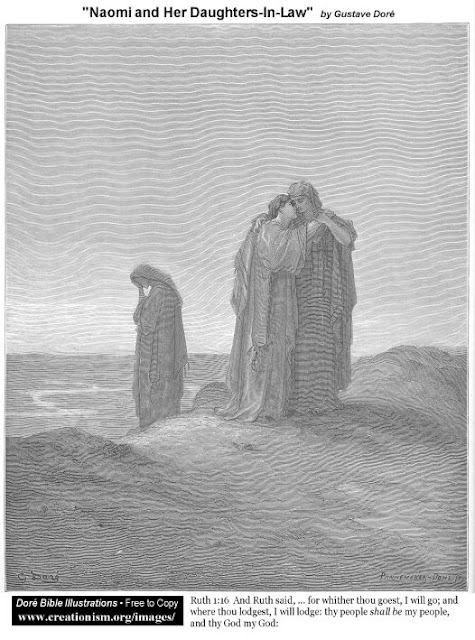 |
| Mandrake roots (Source: Wikipedia) |
TO CHEW ON: "Now when Rachel saw that she bore Jacob no children, Rachel envied her sister, and said to Jacob, 'Give me children or else I die.'" Genesis 30:1
Jacob's harem was not a happy place. Rachel envied Leah's fruitfulness and blamed Jacob for her lack of conceiving. This provoked Jacob's anger. The rivalry between the sisters soon drew their maids into the competitive struggle and enlarged the circle of bigamy. In these women's eyes, even God chose sides, favoring one and then the other with sons. This all sunk to a new low when Rachel and Leah showed their superstitious side as they haggled over some supposedly aphrodisiac mandrake plants for a night with the man.
Some thoughts on this depressing installment of the story:
1. We see the wisdom of God's design of one man + one woman (Genesis 2:24) by the mess in homes where men had several wives (like this one and see also the story of Elkanah, Peninnah and Hannah - 1 Samuel 1:1-7).
2. Individual sinful tendencies and family strife are readily passed from one generation to the next. The tensions of Isaac & Rebekah's relationship are only magnified in Jacob's family.
Do we find such generational weaknesses in our homes too? Probably, to some extent at least. But do they have to carry on? How can we put a stop to such a legacy of dysfunction? Here are some ideas. Can you think of more?
- Ask God to show us where we are duplicating the sins of our fathers. We may be blind to these and need to grow sensitive again. One way is to read and apply what God's word says about attitudes to avoid (Exodus 20:1-17; Galatians 5:17-21) and those to cultivate (1 Corinthians 13:1-13, Galatians 5:22-26). Another way to gain insight is to ask close friends and family members what they see in our relationships and homes.
- We need to beware that kids interpret "normal" from what they see at home, and by God's grace set a different example than, perhaps, we saw in our own homes growing up. Emulate the good; reject the bad.
- Remember that with God there are new beginnings.
" … put off … the old man … and be renewed in the spirit of your mind and that you put on the new man which was created according to God, in true righteousness and holiness" - Ephesians 4:22-24.
"Therefore, if anyone is in Christ, he is a new creation; old things have passed away; behold, all things have become new" - 2 Corinthians 5:17
PRAYER: Dear God, please help me not to make excuses for sinful attitudes and tendencies which have been part of my family. With Your enabling, I'm never too old to change. Amen.
**********
Unless otherwise noted all Scripture quotations are taken from the New King James Version®. Copyright © 1982 by Thomas Nelson, Inc. Used by permission. All rights reserved.


















